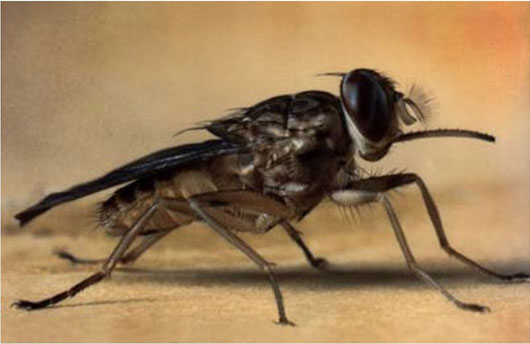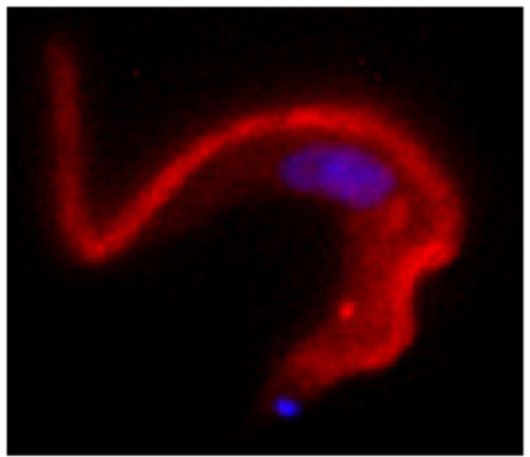Biting back against the tetse fly

Researchers at the University of St Andrews are one step closer to breaking the tetse fly’s grip on Africa’s health and economy.
The bloodsucking fly, which carries the parasite Trypanosoma brucei, is responsible for the spread of the deadly African sleeping sickness and the related disease Nagana in cattle.
Each year African sleeping sickness infects up to 60,000 people, kills three million livestock and causes more than £2 billion in economic losses.
But now researchers in the University of St Andrews’ Biomedical Sciences Research Complex have developed a strategy to block the parasite’s use of a protein crucial to its defence against the human immune system.
By investigating a specific gene involved in the production of lipids, the researchers have been able to stop the parasite from using this major and essential protein, resulting in the parasites death.
There are only two drugs available to combat sleeping sickness, and both have significant drawbacks. One is an arsenic-based drug that kills five percent of users. The other is expensive, requires prolonged hospital treatment and is only partially effective.
This novel approach of interfering with this essential process has the real potential to provide cheap, safe drugs, to help overcome poverty and disease in Africa.
Dr Terry Smith, who led the research, said, “A fundamental understanding of how the parasites makes and uses lipids, has led us to this significant finding, so that we now have a better comprehension of a crucial mechanism the parasite uses to evades our immune system. We are now moving towards finding compounds that stop this parasite specific process, giving us a real opportunity to develop effective, safe, cheap drugs against this Neglected disease.”
The research, funded by the Wellcome Trust, was conducted in the University’s suite of state-of-the-art, restricted-access labs which opened in 2008. The labs, built at a cost of nearly £1 million, are now providing an invaluable asset for investigating a range of infectious diseases.

ENDS
Note to editors
Dr Smith is avilable for interview on: 01334 63412 / 01334 467265 or email tks1@st-andrews.ac.uk.
Note to picture editors
Images are available from the Press Office – contacts below.
Issued by the University of St Andrews
Contact: Gayle Cook, Senior Communications Manager on 01334 467227, email gec3@st-andrews.ac.uk
Ref: Sleeping sickness 150410
Category Research